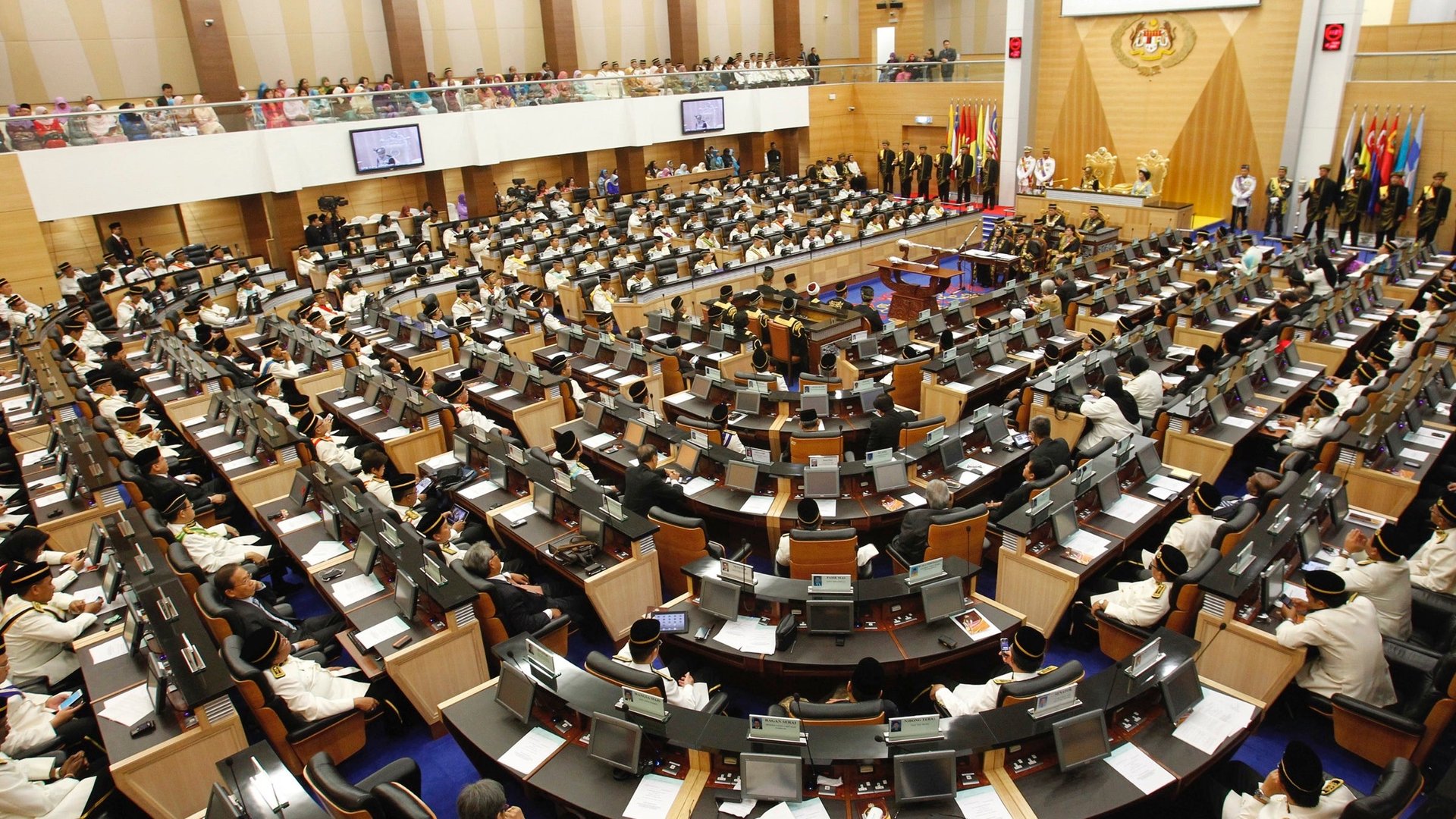Malaysian lawmakers could reject the prime minister’s budget plan—and the prime minister
Forces continue to coalesce against Najib Razak.


Forces continue to coalesce against Najib Razak.
The Malaysian prime minister faces increasing pressure—including from the nation’s royalty—to adequately explain why large sums of money from a troubled state development fund ended up in his personal bank accounts. Authorities in Singapore, Switzerland, Hong Kong, and the United States are investigating international financial activities linked to the fund, 1Malaysia Development Berhad. Inexplicably lavish spending by Najib’s friends and family, including for posh Manhattan real estate, has done little to allay concerns.
On Friday (Oct. 23), Najib is due to propose the nation’s 2016 budget to parliament. Some—including pro-democracy activists and a veteran lawmaker—have suggested the budget proposal process presents an opportunity to remove him from power.
Najib, who also holds the finance minister position, must rely on parliament to approve his budget. But if the lower house of parliament doesn’t pass it after the debates that follow, then he would have to relinquish his post, veteran lawmaker Shahrir Samad said in the Malaysian Insider:
If the budget is not passed, there is no government, no finances. How will the government carry out its administration without paying salaries and allocations? I did not propose this. It is a parliamentary convention. If the budget is not passed, it would mean that there is no support for the ruling party.
Meanwhile Bersih 2.0, a pro-democracy group that organized rallies in late August calling for cleaner government, released a statement yesterday (Oct. 21) urging lawmakers to “vote down the budget to oust Najib.”
“If Najib’s budget is rejected by the parliament—technically, the loss of supply—he has lost the confidence of the House,” the statement read. “In such event, Najib must then tender his resignation, together with his cabinet…”
Of course many in parliament would balk at the idea of publicly moving against the prime minister, who leads the United Malays National Organisation, long the nation’s most powerful party and the backbone of the ruling coalition, Barisan Nasional. For lawmakers who privately think Najib has to go—but don’t want to broadcast that—Bersih 2.0 encourages abstaining from supporting the budget:
Parliamentarians should first act in the interest of the nation, and a ‘backbench revolt’—the act of government backbenchers to vote against the government—is part of the game in parliamentary democracy. Whatever the instruction or warning from the chief whip might be, they should act based on the aspirations of the rakyat [parliament]. And if they do not have the guts to revolt, being absent from voting is always an option.
Removing Najib through budget rejection is probably a long shot, as was a recent attempt at a no-confidence motion (delayed until the next parliament due to a missed filing deadline). It’s telling, nonetheless, that the idea is being so blatantly considered.
And it’s ironic that the man proposing budget solutions is the source of the political uncertainty scaring foreign investors—and thus adding to budgetary challenges. As HSBC recently wrote, ”unless the political situation stabilizes, it would be difficult to expect foreign investors to raise their exposures in Malaysia bonds.”